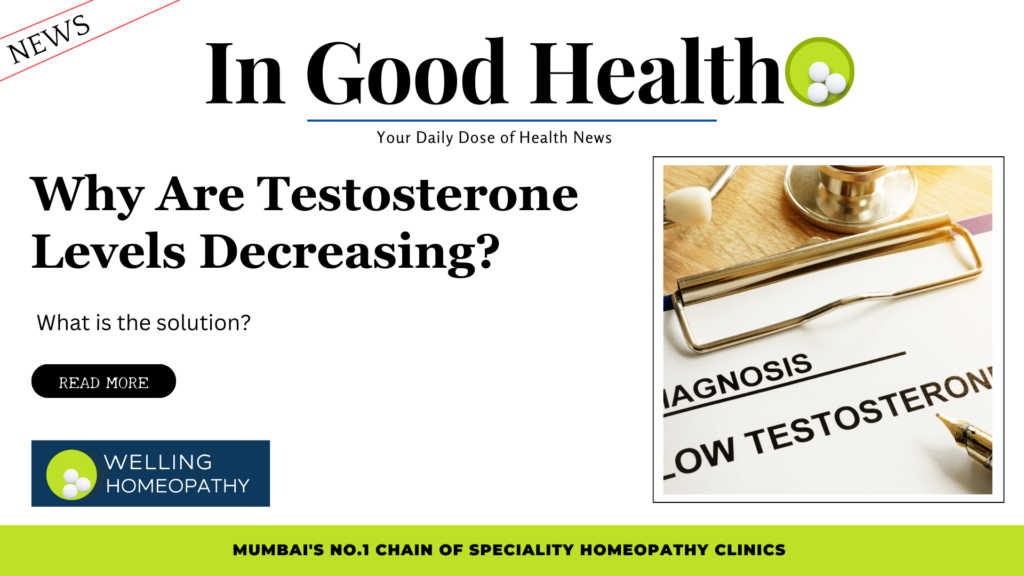Testosterone is a fundamental androgen or sex hormone, playing pivotal roles in maintaining various physiological functions in our bodies. Over the years, research has been detecting an unsettling trend – average testosterone levels in men have been witnessing a consistent decrease, irrespective of aging^[1^].

Testosterone Significance
Testosterone is vital for both men and women, but its levels are naturally more elevated in males. For males and people assigned male at birth (AMAB), testosterone assists in maintaining and developing sex organs, genitalia, reproductive function, muscle mass, bone health, red blood cells count, and overall well-being^[1^].
Defining Low Testosterone
The condition where a person’s testicles fail to produce sufficient testosterone is tagged as low testosterone or male hypogonadism, often referred to as ‘Low-T’. As interpreted from blood measurements, a testosterone count below 250 nanograms per deciliter (ng/dl) is generally perceived as low. However, the American Urology Association sets this limit slightly higher at 300 ng/dl^[1^].
The Dismal Trend of Declining Testosterone Levels
Aging is associated with a gradual decline in testosterone levels, approximately a 1% drop every year after age 30. However, the concerning aspect lies in the consistent detection of testosterone level depressions unrelated to aging. This has triggered apprehension about dropping average testosterone levels in the population, which appear to be edging closer to the “low” range year by year^[1^].
Exploring Factors Behind the Decline
This downward shift in testosterone levels is associated with the listing decline in the general health conditions witnessed across populations. Factors contributing to this pattern include:
- Weight: The surge in numbers on the bathroom scale seems to be influencing testosterone production. Higher body mass index (BMI) and excessive weight apply stress to the body, impacting normal testosterone production^[1^].
- Physical Activity: Engaging in activities like high-intensity interval training and strength training can boost testosterone levels^[1^].
- Diet: Consuming a well-balanced, nutritious diet promotes optimal hormone production, including testosterone. Overconsumption leading to obesity initiates a negative health cascade^[1^].
- Alcohol: Chronic alcohol abuse results in a reduction in testosterone production^[1^].
- Sleep: Disruption in normal sleep cycles interferes with the body’s rhythm of testosterone production^[1^].
- Toxins: Exposure to endocrine-disrupting chemicals (EDCs) used in prevalent household products may contribute to testosterone declines^[1^].
Improving Testosterone Levels
Addressing the issue of declining testosterone levels entails adopting healthier lifestyle practices. Modifying basic lifestyle patterns, such as more exercise, improved dietary habits, and proper sleep, can influence testosterone levels positively and enhance overall health^[1^].
Seeking Medical Advice
Most individuals are unaware of their testosterone levels as it is not part of routine screenings. Assessment becomes necessary when symptoms indicative of low testosterone, such as low sex drive, chronic fatigue, or erectile dysfunction, manifest. Our Homeopathy specialist can help recognize the precise cause, discern if it is connected to low testosterone or other health conditions, and devise suitable interventions^[1^].
Awareness of this pronounced trend and its potential implications is needed. By adopting a proactive stance towards health management based on understanding the influence of various factors on testosterone levels, we can potentially counter this issue’s rising tide.
Ref:
1. https://health.clevelandclinic.org/declining-testosterone-levels

